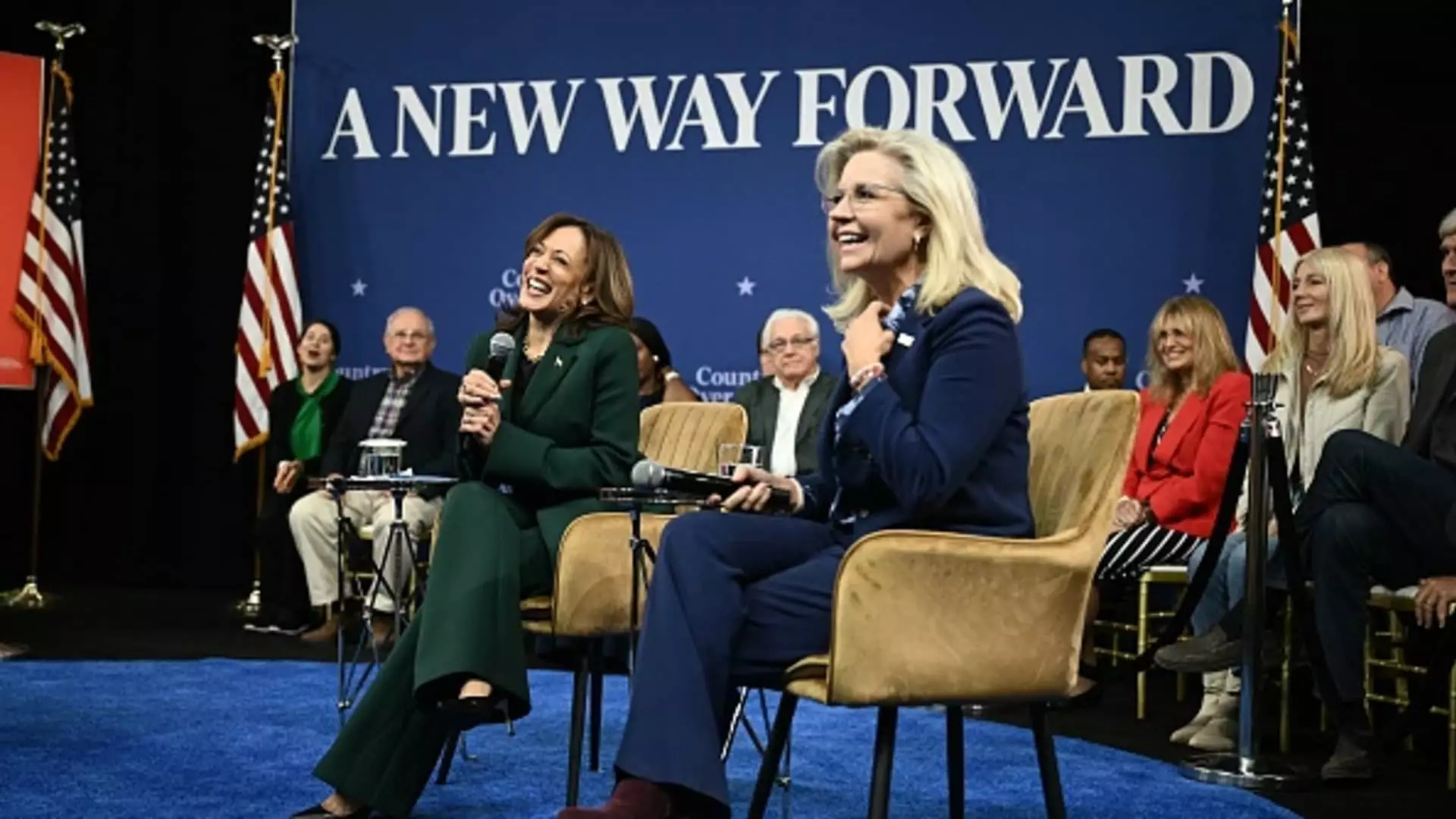In an era marked by partisan polarization, the collaboration between Vice President Kamala Harris and former Republican Congresswoman Liz Cheney sends ripples across the political landscape. Their recent discussions in pivotal battleground states—Pennsylvania, Michigan, and Wisconsin—are emblematic of a growing movement where traditional party lines are blurred in pursuit of deeper ideals. This partnership signals a potential realignment amongst voters who prioritize moral values over strict party allegiances, challenging the conventions that have long dictated American politics.
Cheney’s assertion that the issues at hand are about “right and wrong” rather than party affiliation encapsulates this perspective. By encouraging voters to lean on their conscience rather than party loyalty, she aims to galvanize discontented Republicans who feel alienated by the current political atmosphere dominated by former President Donald Trump. The reticence of certain Republicans to voice their dissent against Trump is telling, revealing an intricate web of loyalty and fear. Cheney’s invitation for these individuals to act according to their principles could pave the way for a paradigm shift, opening the door for bipartisan support for Harris.
The foundation of Cheney’s support for Harris lies in her belief in constitutional fidelity. Addressing her constituents in Malvern, Pennsylvania, Cheney indicated that true conservatism is demonstrated through unwavering commitment to the Constitution—an ideological stance she argues is at odds with Trump’s administration. This assertion aligns with a larger theme of the 2024 election where candidates must distinguish themselves not just as party members but as guardians of democratic principles. Cheney’s advocacy for Harris is less about aligning ideologically with a Democrat and more about aligning with a candidate she feels will uphold these essential principles.
Furthermore, Cheney’s perspective on women’s reproductive rights reveals the deep complexities within contemporary conservatism. Although she identifies as “pro-life,” her recognition that excessively restrictive laws on reproductive healthcare threaten the fabric of American society represents a nuanced understanding often absent in tribalistic political dialogue. This intersectionality highlights the struggles conservatives face in balancing personal beliefs with the societal implications of their policies.
The Harris campaign has strategically positioned itself to attract disillusioned Republicans who are hesitant to support Trump. The establishment of the “Republicans for Harris” initiative is a calculated effort to consolidate support from voices in the GOP who may feel disenfranchised by their own party’s direction. This method of courting voters reflects an astute political strategy, recognizing that amidst deep-seated partisan divides, there exists a spectrum of political beliefs ripe for negotiation and dialogue.
Harris’ pledge to include a Republican in her cabinet if elected demonstrates her understanding of bipartisan governance. By fostering a governance model that prioritizes collaboration across the aisle, she aims to mitigate the toxic partisanship that has proliferated in recent years. Such an approach invites “good ideas from wherever they come,” a sentiment that resonates with many Americans weary of constant divisiveness.
In her remarks, Cheney has not shied away from critiquing Trump’s foreign policy, labeling it both “dangerous” and “not Republican.” Her assertions regarding NATO reflect a fundamental concern for both national security and global alliances. Cheney’s recognition that the stability of international partnerships directly correlates with American freedom emphasizes a critical discourse necessary for contemporary conservatism, diverting attention from isolationist tendencies that threaten established alliances.
Drawing parallels between her views and Harris’ staunch support for Ukraine amidst Russian aggression showcases a rare convergence of thought across party lines on international matters. As Cheney articulated her concerns, it became evident that her support for Harris is not purely political; it stems from a genuine fear regarding America’s role in the world if Trump were to regain the presidency and follow through with his isolationist agenda.
Despite the promising intersection of Harris and Cheney’s ideologies, significant hurdles remain. Trump’s vocal criticism of Cheney as a “war hawk” exemplifies the challenges faced by Republicans who dare to dissent. The potential backlash from staunch Trump supporters may deter many from crossing party lines despite their misgivings about the former president. It will take considerable courage for these voters to realign their loyalties in a way that deviates from deeply entrenched party identities.
As the election date approaches, the effectiveness of this unprecedented alliance remains uncertain. However, the conversations initiated by Harris and Cheney reveal a crucial dialogue on unity, principles, and the future trajectory of American politics. In the face of division, their collaboration serves as a beacon of hope for many, suggesting that shared values might emerge to transcend the strict categorization of political identity.


Leave a Reply